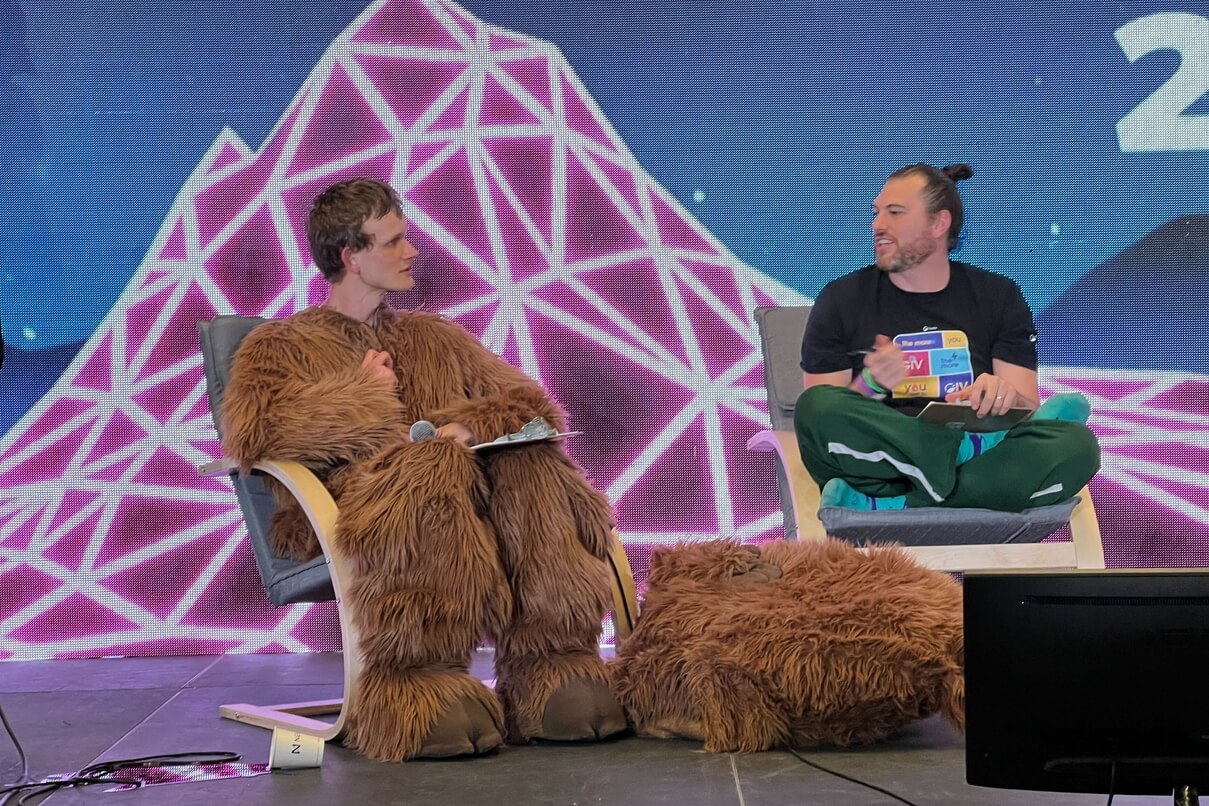ETHDenver Hackathon Finalists Aim at These Pain Points Across DeFi, NFTs, DAOs, and Metaverse

30 ETHDenver hackathon finalists that pitched their ideas to a team of crypto veterans and were competing for up to USD 5,000 in prizes, largely focused on solving common pain points across various segments of the Ethereum (ETH) ecosystem.
Let’s take a closer look at some of the projects that competed during one of the largest events for the ETH community last week.
In the DeFi category, the four submissions included IdentDeFi, SlowSwap, DustSweeper, and Skew You.
DustSweeper, for example, is working on a solution that allows users to swap small amounts of tokens (”dust”) for ETH without expensive gas transactions, while SlowSwap aims to prevent MEV (miner extractable value)-related issues.
Meanwhile, IdentDeFi aims to create a privacy-preserving know your customer (KYC) architecture by utilizing zero-knowledge (ZK) proofs to retain user anonymity.
In the NFTs category, projects like Bunker.finance, an NFT-backed lending protocol that aims to offer instant liquidity via pooling, Mimicry Protocol, which focuses on DeFi derivatives protocol for NFT collections, and Loudverse, a two-sided marketplace for funding hard-to-quantify artworks, made it to the final list.
Going further, Background Network, a decentralized help center, and AcademyONE, an education platform allowing projects to incentivize the creation of high-quality learning materials, were among the DAO (decentralized autonomous organization)-focused submissions aiming to use these experimental entities to solve real-world problems.
Also, in the infrastructure and scalability category, projects like Cannon (“a Hardhat plug-in for declaring on-chain dependencies”) and Deus Ex Securitas (which uses machine learning to automatically audit smart contracts) provided their own solutions for infrastructure constraints.
MoonScape, Funbugᵍᵐ, and INDAO were submissions in the gaming and metaverse categories. They offer a number of benefits, including yield opportunities and support for NFTs.
Another interesting submission, in the new frontier category, was ZKmaps, which enables users to prove their location within a bounding area, geofencing, removing the need for disclosing their exact location. Also, among the finalists, was Proof of Meditation which aims to incentivize people to meditate and take more care of their health and emotional wellbeing.
Cannon, Dustsweeper, Proof of Meditation, Deus Ex Securitas, and Loudverse were announced as the winners of the hackathon.
_____
Learn more:
– Web3 in 2022: Defining a Concept & Developing a New Paradigm
– Blockchain Games in 2022: Play-to-Earn, Gamification, Interoperability and Major Publishers
– DeFi Trends in 2022: Growing Interest, Regulation & New Roles for DAOs, DEXes, NFTs, and Gaming
– Layer 2 in 2022: Get Ready for Rollups, Bridges, New Apps, Life With Ethereum 2.0, and Layer 3
– Metaverse Trends in 2022: Prepare for More Gaming and New Virtual Experiences with NFTs
– Crypto in 2022 Will Bring New and Older Emergent Trends to the Fore
– NFTs in 2022: From Word of the Year to Mainstream Adoption & New Use Cases




